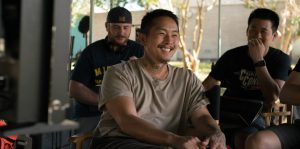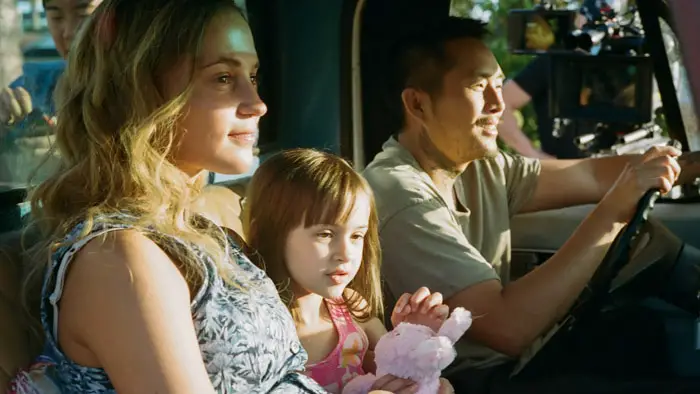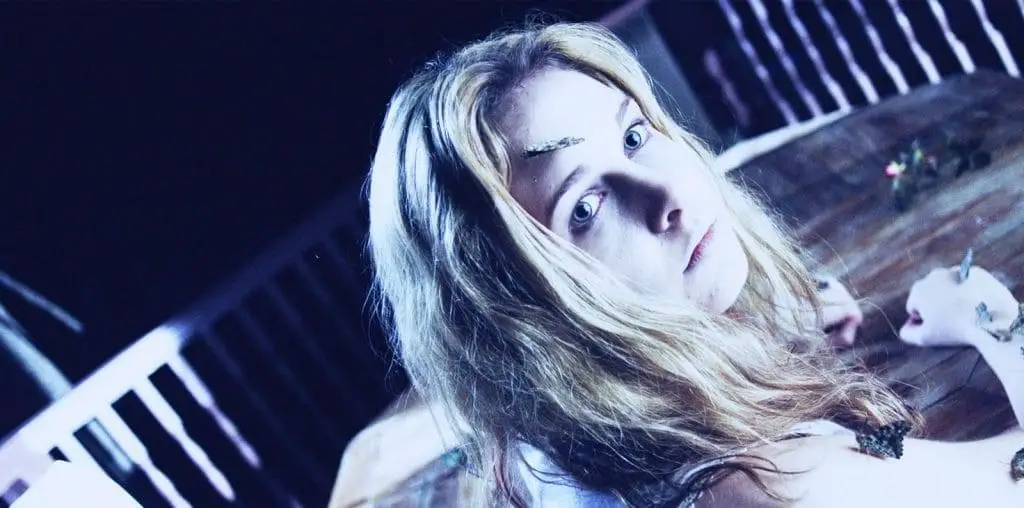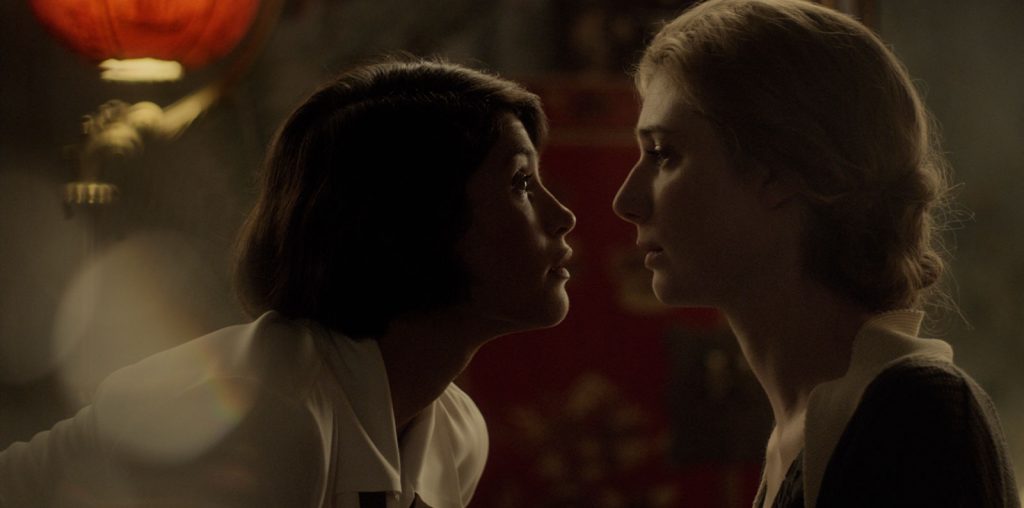
I think good films, in general, make you feel. They don’t have to make you feel good, but they have to make you feel something. And in doing so, I think a lot of it also has to do with how the audience is feeling at that time. What emotional triggers you’re pulling at that point.
Yeah, yeah. I’m not saying it’s comfortable, though. Absolutely not.
I’m always curious because, for me, it seems, comedy is much easier to write versus tragedy. So when you’re developing this story, and you know that you’re taking your character down a very dark, torturous road, how do you approach it as a writer?
Again, it’s about the intention of the piece, and then you structure accordingly. What is the sort of impact? What kind of impact do you want to have on your audience? You then structure it accordingly. I think I knew from the get-go that I wanted to have an open-ended ending. That was all considered during the writing process as well.

(L to R) Actor Alicia Vikander, actor Sydney Kowalske and actor/writer/director Justin Chon on the set of BLUE BAYOU, a Focus Features release. Credit : Focus Features
“I had five different adopted consultants kind of guiding me and reading every draft.”
Last question. The movie’s about the experience of deported adoptees here in the United States. I guess as a writer, there are areas that you’re not familiar with in terms of your personal experience. What was it like trying to embody that experience you’ve not had into your performance?
I think that’s a very valid point, and I am not an adoptee. I can never understand what it feels like to be an adoptee, which was a huge consideration when I wrote this. I had five different adopted consultants kind of guiding me and reading every draft. And I had one woman who really was my rock that I could go to at any moment, any time a day, and run things by. Some of the things in the film that were formed by them, for example, when Antonio is holding his baby in his arms. I was told adoptees that having your own child is an incredibly emotional and big deal in an adoptee’s life because it’s the first time you have someone blood-related to you.
I ensured that that moment was in the film and this misconceived notion that their parents didn’t want them and gave them up for adoption. That’s also not entirely true. A lot of it’s circumstantial. And so in the film, I also included that. Antonio’s mother kept him as long as she could, meaning that she did love him. I spent hundreds of hours talking to adoptees, and not to say that that’s enough. And that is adequate to be able to portray an adoptee experience or someone who’s being deported. Still, I did everything I could to try at least to bridge that gap and responsibly tell and represent their story.
Thank you. Appreciate it. And congratulations on Blue Bayou.
Thank you so much.



[…] Many Thanks To The following Website For This Valuable Content. Justin Chon on Finding the Tragedy in Blue Bayou […]
[…] Many Thanks To The following Website For This Valuable Content. Justin Chon on Finding the Tragedy in Blue Bayou […]
[…] Many Thanks To The following Website For This Valuable Content. Justin Chon on Finding the Tragedy in Blue Bayou […]
[…] post Justin Chon on Finding the Tragedy in Blue Bayou first appeared on Film […]